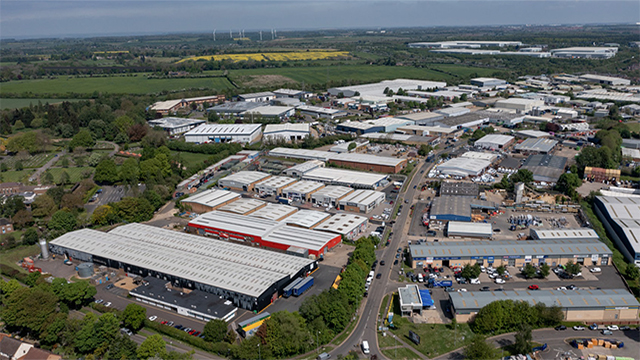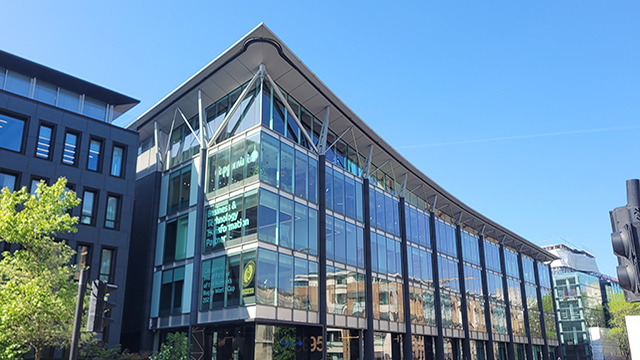The new normal for residential will be beset by challenges
News
by
Jonathan Vandermolen
COMMENT After eight weeks in lockdown, I must confess cabin fever has started to set in at my new base camp. I know the world has changed and will not be the same again for the foreseeable future, but I was really starting to miss my colleagues, clients and generally other human beings.
So, when the government announced that agents could go back to work, I was over the moon. As we go in the first stages of whatever our new normal might look like, coming out of lockdown I am hopeful, but wary of new challenges to come.
The government is currently propping up the economy with a series of great measures which are starting to look like a sticking plaster on a broken leg. These are short-term solutions. I think it’s fair to say that once furlough is removed, a large number of those 7.5m people and rising will be made redundant.
COMMENT After eight weeks in lockdown, I must confess cabin fever has started to set in at my new base camp. I know the world has changed and will not be the same again for the foreseeable future, but I was really starting to miss my colleagues, clients and generally other human beings.
So, when the government announced that agents could go back to work, I was over the moon. As we go in the first stages of whatever our new normal might look like, coming out of lockdown I am hopeful, but wary of new challenges to come.
The government is currently propping up the economy with a series of great measures which are starting to look like a sticking plaster on a broken leg. These are short-term solutions. I think it’s fair to say that once furlough is removed, a large number of those 7.5m people and rising will be made redundant.
The economy has been decimated in pretty much every sector and this will have a long-lasting impact on the property business. But what does all of this mean for the residential market?
Who’s buying in a pandemic?
First and foremost, despite the easing of lockdown regulations, I don’t think anyone who doesn’t have to move home will choose to do so for the next three to six months. Why would anyone want to allow someone into their home unless really necessary or go to a new homes sales centre until there’s more clarity on either a potential second wave or hopefully a vaccine?
On this basis, prices will have to drop somewhere between 10-20% in the first instance. Even with Help to Buy, there is likely to be a shortage of first-time buyers as a result of furloughs or redundancy, or others worried about their medium to long-term employment prospects. Second-time buyers will also be affected by employment worries. And the top end of the market will be dependent on whether people’s finances are adversely affected to the point that they are forced to sell. Otherwise, why would you?
There could be one saving grace and that’s investors. However, while there may be mountains of cash to invest, the vast majority are currently seeking minimum 20% discounts as they perceive weakness.
Someone else’s money
Whether you are an owner occupier, investor or developer generally you are always using someone else’s money to assist you with your purchase, whichever sector you are in, a valuation will be required for the lenders’ security and this is where the first issues arise.
From a valuation perspective, technically there has not been a drop in prices, as there is very little comparable evidence to prove otherwise. However, as we know from the last crash, a crippled economy is all that’s required for confidence to evaporate. My understanding is that valuers will continue to provide reports for lenders with a Covid-19 clause to reduce their risk and protect professional indemnity cover.
What this means for the development lenders is that in order to protect themselves and reduce risk, their loan-to-value ratios will need to drop drastically. What I’m hearing on development loans is somewhere between 50-60% of cost. This means more equity is required, which is much more costly than cheap debt in a low interest rate environment.
Developers in hot water
Construction will be delayed as you can only get half the number of contractors on site owing to social distancing. Most lenders are sympathetic to developers and extending terms. But these time periods are unlikely to be interest free and as time goes on many will be in hot water. I believe anyone who has lent money outside of the first charge has a serious issue, particularly if the main lender decides to pull the plug.
While lenders are not currently appointing receivers, this is partly for political reasons and partly due to values. However, this cannot last indefinitely and when a loan’s term has expired it needs to be repaid eventually.
Looking forward, how does this affect the land market? The answer, I’m afraid, is values again have to drop. A combination of falling sales prices, rising build costs and lower loan to cost ratios mean more equity will be required going forward.
Most of the valuations I have provided on sites in the last six months have been met with the response: “Your build costs are too high and your sales values too low.” I suspect new homes agents are having similar conversations on sales values, as developers try to cling onto evaporating profits and repay their debts.
And as I sign off, we have just received our first receivership appointment since lockdown started. I wonder, is this the shape of things to come in the new normal?
Jonathan Vandermolen is chief executive of Vandermolen Real Estate











